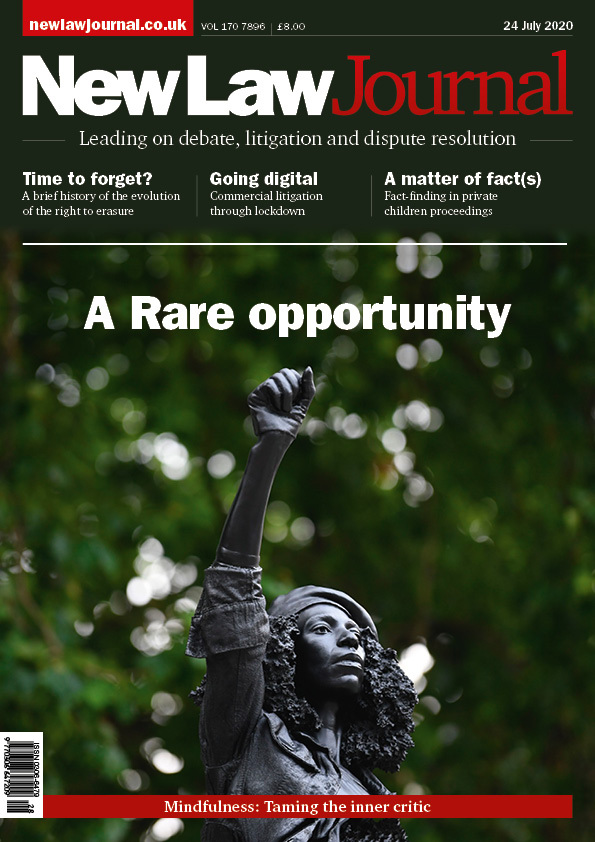THIS ISSUE

Professor Suzanne Rab explains the pros & cons of Early Neutral Evaluation, & offers some practical advice
Highlights from commercial litigators’ COVID diaries
How did the commercial litigation world cope when it had to go digital almost overnight? Grania Langdon-Down reports
We have the chance to institutionalise anti-racism at work. We must take it & embrace a united future, says Raph Mokades
Fear of failure rather than celebration of inspiration imposes a heavy burden on mental health. Helen Pamely offers some mindful tips
Shane Crawford highlights the complex situation of sponsoring an immigrant worker during the pandemic
The evolution of the right to erasure & how it is now being used in practice, by Alex Keenlyside & Hannah Crowther
Fact-finding hearings in private children proceedings: an overview, by Kim Beatson & Victoria Brown
The Justice Committee launched an inquiry this week into the future of the Probation Service
Judges and magistrates have for the first time been given a guideline for sentencing offenders with mental disorders
MOVERS & SHAKERS

Jackson Lees Group—Jannina Barker, Laura Beattie & Catherine McCrindle
Firm promotes senior associate and team leader as wills, trusts and probate team expands

Asserson—Michael Francos-Downs
Manchester real estate finance practice welcomes legal director

McCarthy Denning—Harvey Knight & Martin Sandler
Financial services and regulatory offering boosted by partner hires
NEWS
The government has pledged to ‘move fast’ to protect children from harm caused by artificial intelligence (AI) chatbots, and could impose limits on social media as early as the summer
All eyes will be on the Court of Appeal (or its YouTube livestream) next week as it sits to consider the controversial Mazur judgment
An NHS Foundation Trust breached a consultant’s contract by delegating an investigation into his knowledge of nurse Lucy Letby’s case
Draft guidance for schools on how to support gender-questioning pupils provides ‘more clarity’, but headteachers may still need legal advice, an education lawyer has said
Litigation funder Innsworth Capital, which funded behemoth opt-out action Merricks v Mastercard, can bring a judicial review, the High Court ruled last week







